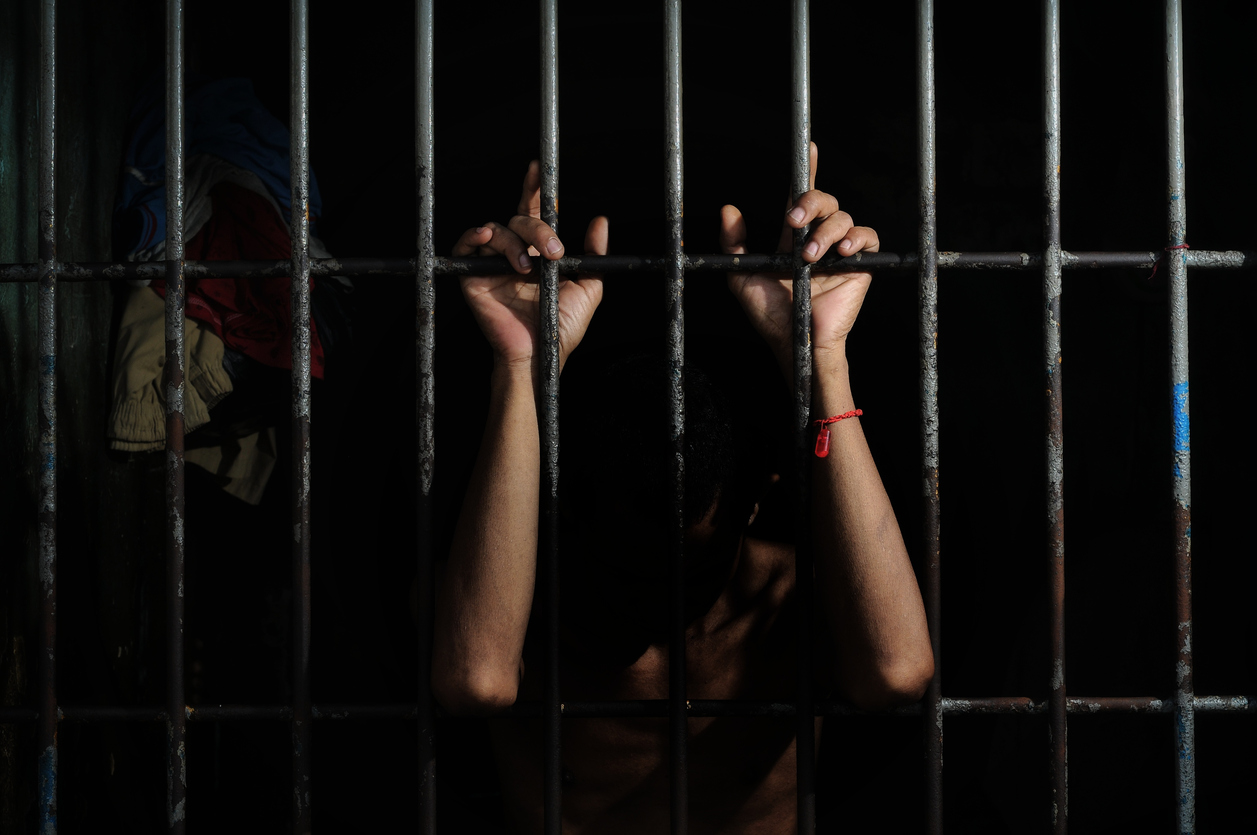- 2 Nov 2025

The psychological false imprisonment effects often extend far beyond the physical act of unlawful confinement. Victims not only face restrictions on their movement but also endure emotional consequences that linger for years after release. While the legal system defines false imprisonment as an unlawful restraint on personal liberty, the lived reality involves fear, trauma, and long-lasting psychological disruption. For individuals and society alike, understanding these effects is essential to grasping the true weight of this violation.
The Overlooked Depth of False Imprisonment Effects
When people think about false imprisonment effects, they often picture the immediate loss of freedom. Yet the impact is layered, involving mental strain, emotional exhaustion, and distorted perceptions of safety. Victims are subjected to a forced environment where control over personal decisions is stripped away, creating a profound sense of helplessness. This dynamic alone can shape how survivors process future relationships, authority figures, and daily routines.

Emotional Shock and the First Phase of Psychological Impact
One of the earliest false imprisonment effects is overwhelming emotional shock. Victims frequently report heightened anxiety, disbelief, and panic in the initial stages of confinement. These reactions are not only natural survival mechanisms but also precursors to deeper psychological harm. The sudden loss of autonomy produces an immediate crisis of identity, where individuals question their ability to protect themselves and wonder how long the ordeal will last.
Long-Term Trauma and Post-Traumatic Stress
False imprisonment is a trauma that does not end with physical release. Many survivors continue to suffer from intrusive memories, flashbacks, and hypervigilance—symptoms consistent with post-traumatic stress disorder (PTSD). The false imprisonment effects on mental health are often cyclical, where fear resurfaces in environments that remind survivors of their captivity. Everyday experiences, such as locked doors or loud noises, may trigger distressing memories, leading to avoidance behaviors that affect social and occupational life.
False Imprisonment Effects on Trust and Human Connection
Trust is a cornerstone of human interaction, but it often becomes fractured following unlawful confinement. Victims of false imprisonment may struggle to rebuild interpersonal relationships, fearing betrayal or harm even from loved ones. The psychological harm is not limited to isolation during imprisonment but continues afterward as survivors cautiously navigate intimacy, friendship, and professional settings. This inability to fully trust again is one of the most damaging false imprisonment effects, reinforcing cycles of loneliness and alienation.
Cognitive Distortions and Internalized Fear
False imprisonment distorts a victim’s perception of control. Survivors frequently internalize fear, believing they are powerless in preventing future harm. This cognitive distortion leads to heightened vulnerability, where victims may perceive ordinary challenges as threats. Over time, these psychological false imprisonment effects interfere with rational decision-making, increasing susceptibility to anxiety disorders, depression, and even substance abuse as individuals attempt to cope.
Depression and Emotional Numbness
The weight of forced confinement often results in depression. Many victims experience prolonged sadness, emptiness, and hopelessness. These depressive symptoms are not merely short-term responses but lasting outcomes that may persist for years. Emotional numbness is another common reaction, where individuals detach from feelings to protect themselves from overwhelming memories. This state of detachment, though initially a survival tool, can evolve into chronic disconnection from reality, intensifying the emotional false imprisonment effects survivors endure.
False Imprisonment Effects on Identity and Self-Worth
A hidden consequence of false imprisonment is its erosion of self-worth. Victims frequently question their value, blaming themselves for being placed in a vulnerable situation. This internalized guilt compounds the trauma, making recovery even more difficult. The false imprisonment effects on identity development are particularly harmful for younger victims, whose sense of self is still forming. Unlawful confinement can disrupt this process, leaving them with lifelong struggles around confidence and purpose.
Social Reintegration Challenges After Confinement
Even after regaining physical freedom, the psychological wounds remain. Survivors often encounter difficulties reintegrating into society. Social withdrawal, mistrust, and fear of public spaces are among the common false imprisonment effects that hinder return to normal life. Employment, education, and social interaction can feel daunting, and many victims find themselves retraumatized by seemingly ordinary tasks. This makes reintegration one of the most complex aspects of recovery, highlighting how false imprisonment continues to shape lives long after the event ends.
Legal Recognition of Psychological Harm
Courts and legal authorities increasingly acknowledge the mental health impact of false imprisonment. Victims may seek compensation not only for physical harm but also for psychological injuries sustained. Legal recognition of these false imprisonment effects reflects an evolving understanding that trauma is not merely visible but deeply embedded within emotional and cognitive experiences. Victims who pursue legal remedies help establish precedents that broaden awareness of the mental toll unlawful confinement inflicts.
External Perspectives on Human Rights and False Imprisonment
International human rights bodies and government entities stress that unlawful confinement violates core liberties. According to resources from the U.S. Department of Justice, the protection of civil rights includes freedom from unlawful detention and confinement. This acknowledgment underscores that false imprisonment is not only a personal injury but also a violation of fundamental societal values. Connecting these legal standards to lived experiences helps illustrate why the psychological false imprisonment effects deserve greater attention.
Interconnection of Mental and Physical Consequences
The psychological and physical aspects of false imprisonment are deeply interconnected. Heightened stress levels, anxiety, and depression frequently manifest as physical conditions such as insomnia, headaches, or gastrointestinal distress. These health challenges demonstrate that the psychological false imprisonment effects are not confined to the mind but extend to the entire body. Victims often find themselves in a cycle where emotional trauma exacerbates physical illness, further complicating the recovery process.
Case Studies and Broader Social Awareness
Accounts from survivors reveal the profound depth of false imprisonment effects on daily life. Many report struggles with long-term psychological scars, ranging from nightmares to an inability to maintain steady employment. These lived experiences shed light on the broader societal implications, emphasizing why communities must acknowledge and address the harm caused by unlawful confinement. By examining case studies, awareness grows not only of individual suffering but also of the broader necessity for systemic change.
Pathways Toward Healing and Recovery
Recovery from false imprisonment effects is neither quick nor simple. Therapeutic intervention, supportive communities, and acknowledgment of harm play vital roles in helping victims rebuild their lives. While professional therapy may assist in managing PTSD, survivors also require societal validation that their suffering is real and unjust. Healing begins with recognition and continues with consistent support that addresses both the psychological and social barriers created by unlawful confinement.
Conclusion
The psychological false imprisonment effects reach into nearly every aspect of a victim’s life. From emotional shock and PTSD to depression, identity struggles, and social reintegration challenges, the damage is profound and enduring. Recognizing these effects is not only a matter of compassion but also a matter of justice. Survivors deserve acknowledgment of the invisible injuries they carry, and society must work to ensure unlawful confinement is treated as both a legal violation and a deep psychological wound. For further insight into the intersection of mental and physical harm, resources such as false imprisonment effects on mental and physical health provide valuable context. Understanding and addressing these harms ensures that victims are not silenced by their suffering but supported in their pursuit of healing.
Recent posts
- 17 Oct 2025
Categories
- Accident & Injury Law (54)
- AI (1)
- Copyright Law (1)
- Criminal & Civil Law (17)
- Disability Law (2)
- Driving Law (2)
- Employment Law (1)
- Estate Planning (2)
- Family & Relationship Law (29)
- Food and Drink (2)
- Gas Exposure (1)
- Health (1)
- Immigration Law (2)
- Injury Claim (1)
- Insurance Law (7)
- Legal (40)
- Lemon Law (4)
- Mediation (3)
- Medical Malpractice (1)
- Property & Business Law (9)
- Severance Agreement (1)
- Travel and Leisure (1)
- Uncategorized (12)
- Worker Compensation (2)



